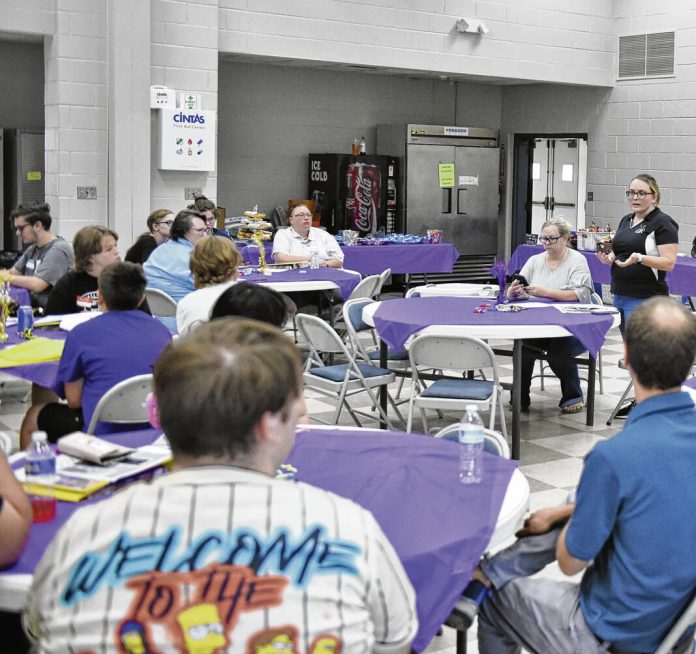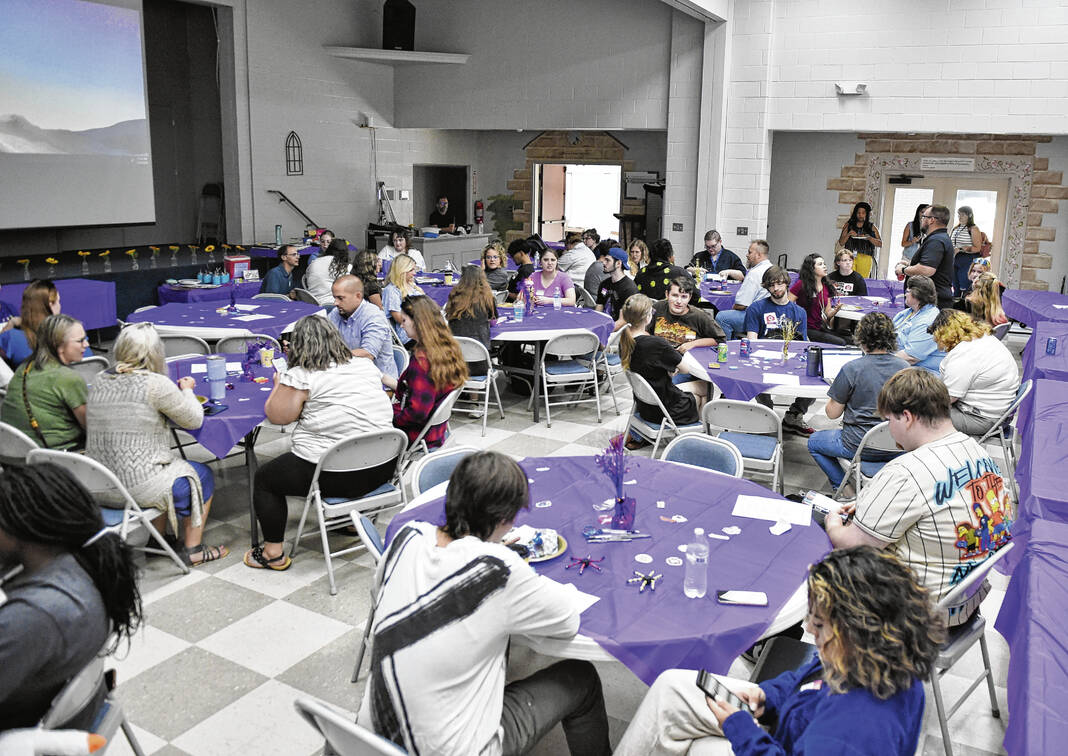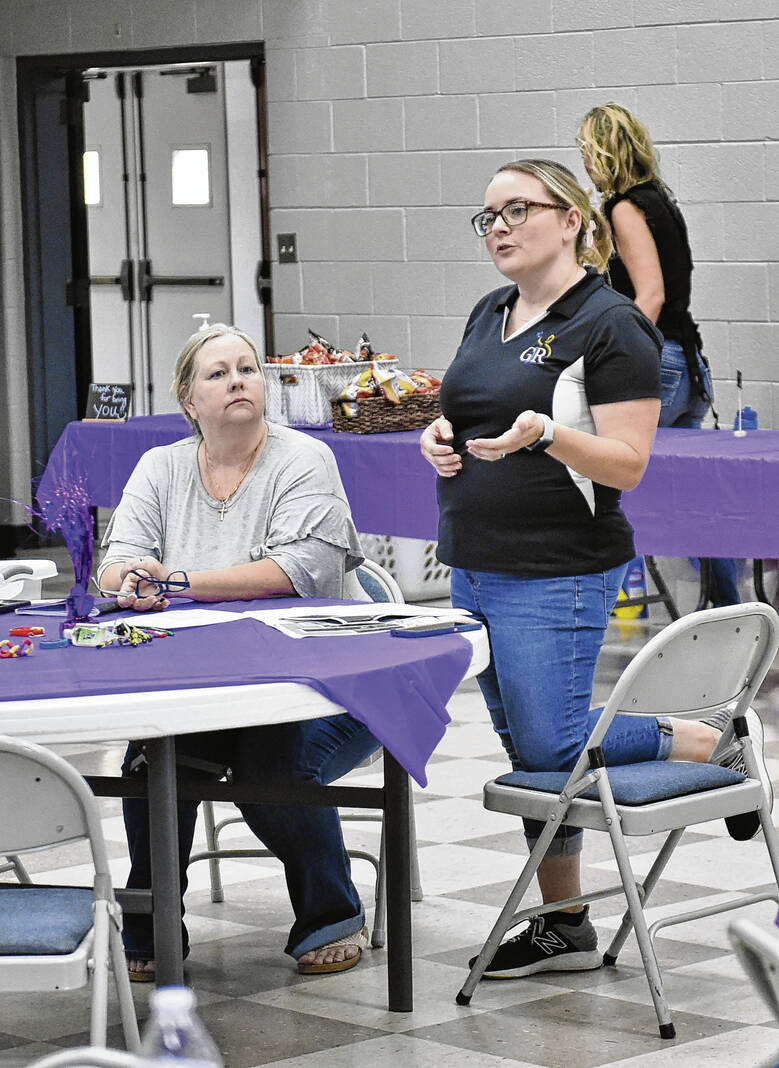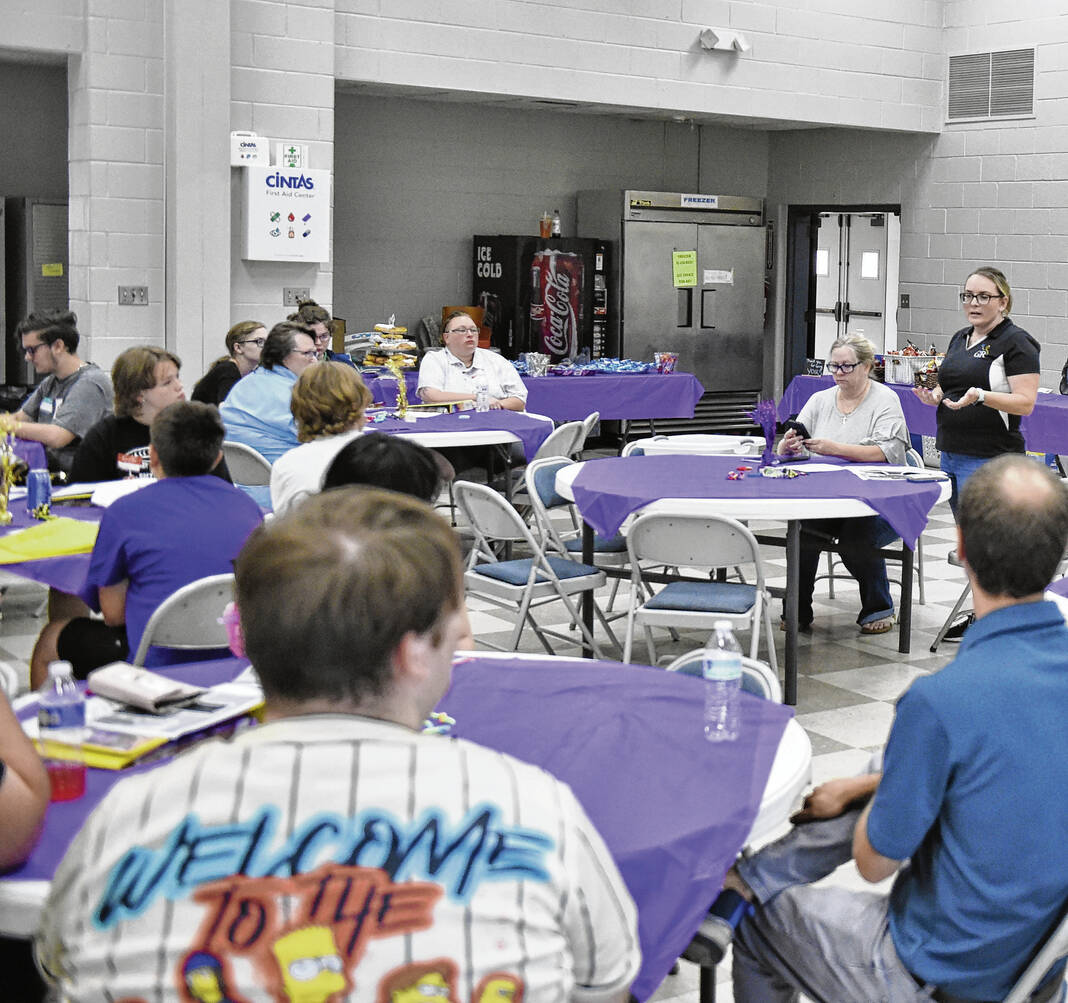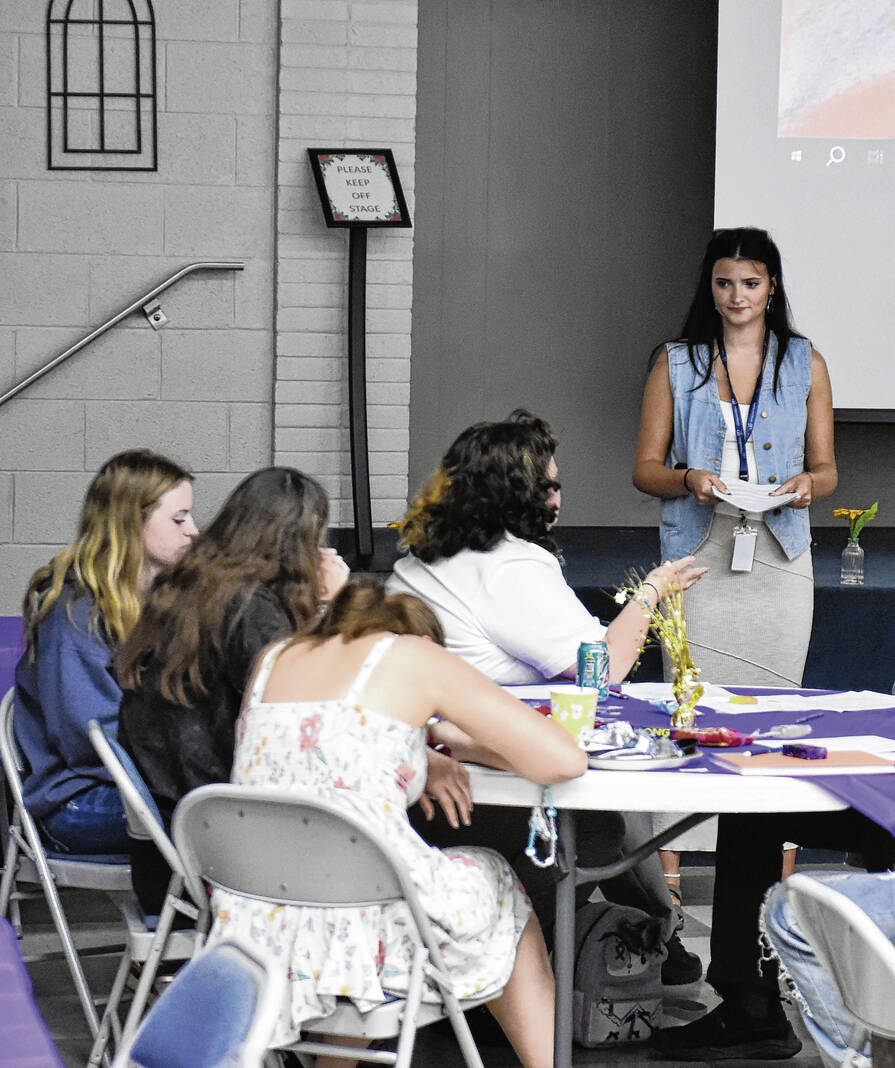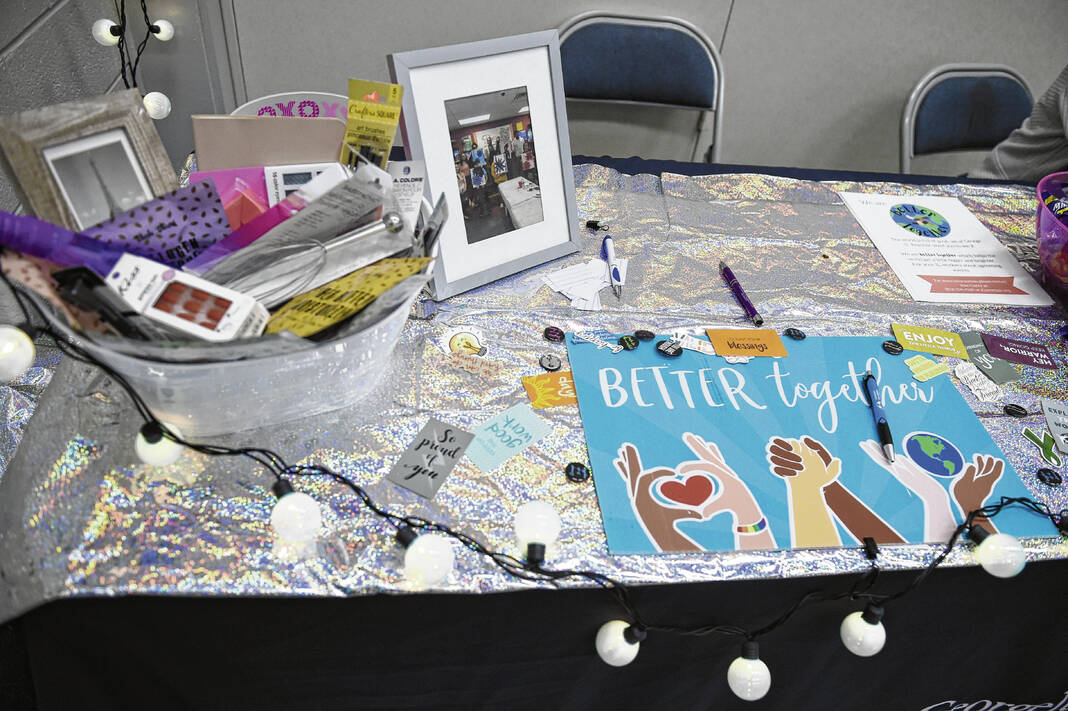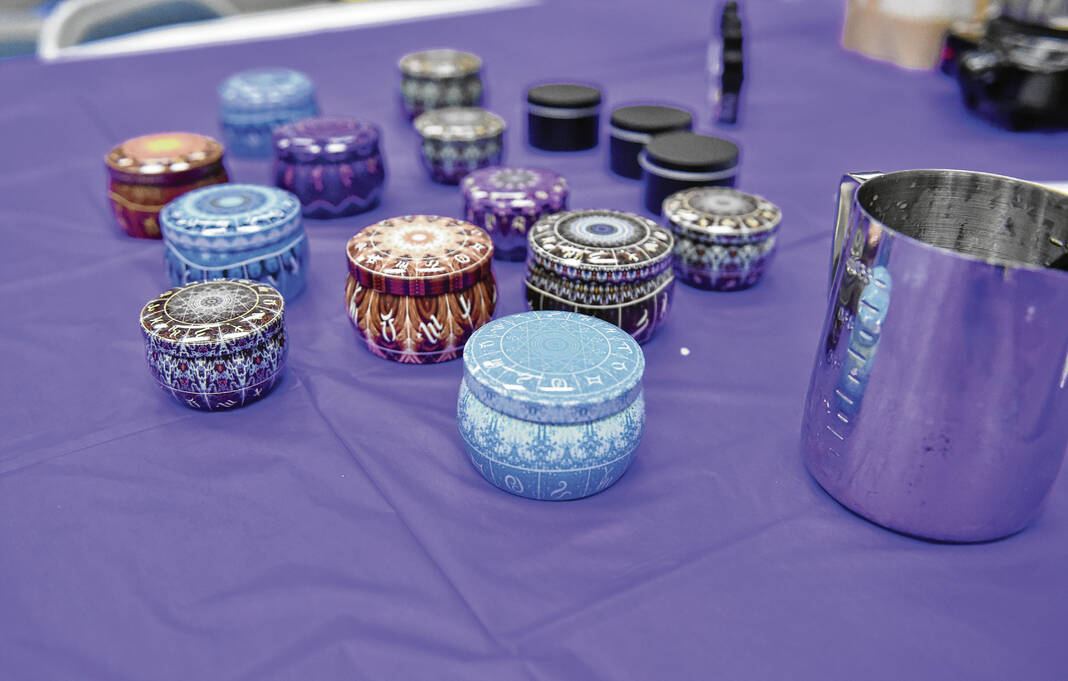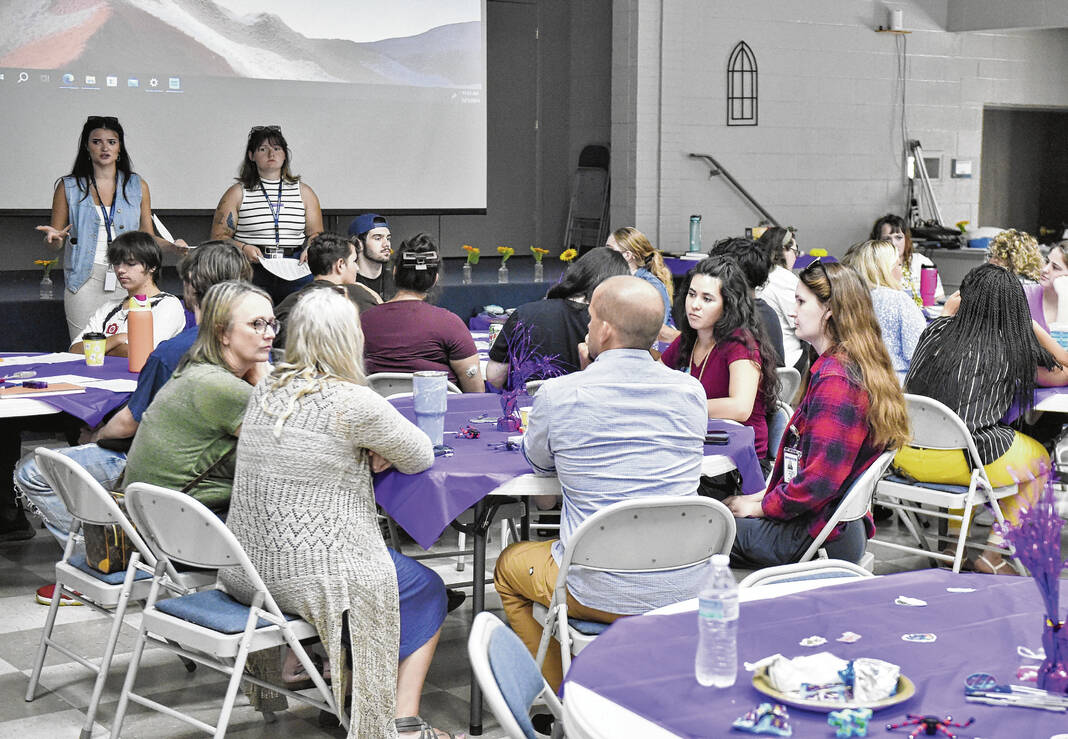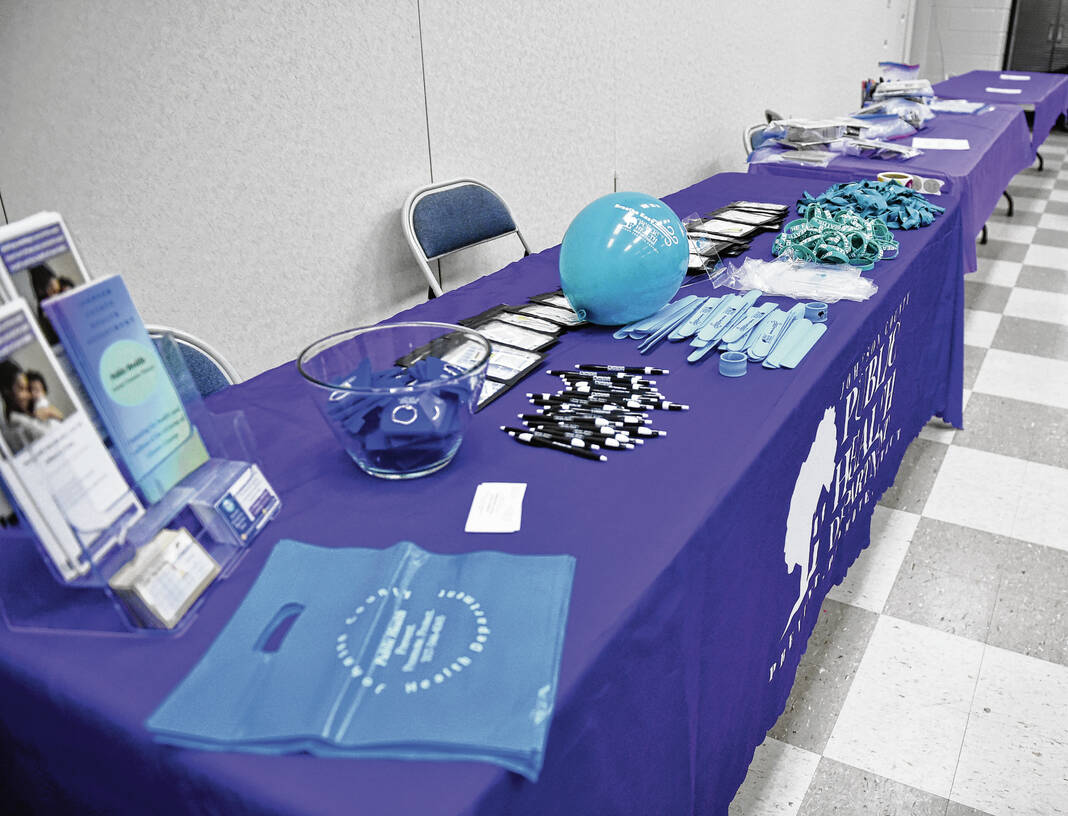The transition into adulthood is a challenge for anyone about to turn 18.
Learning skills such as planning a budget, figuring out insurance and finding a place to live are difficult in the best of circumstances for most people.
Doing so after being in the foster care system only makes the task harder.
“None of us are ready to experience the world when we’re 18 years old. No matter how hard you work, you’re not ready,” said Jordan Otero, a former foster child. “Most kids aren’t ready for college when they’re 18, but they have their parents to call. We don’t really have anyone to call if we don’t maintain those relationships from those foster homes.”
That’s why more than older foster youth had come to Franklin Tuesday, filling Grace United Methodist Church for the Moving Forward conference. The participants, all between the ages of 16 and 23, picked up valuable information about housing, education, employment and money management during a massive resource fair.
They showed off their skills in a talent show, listened to a panel of youth describe their experiences and took away valuable information in small break-out sessions.
Organizers for George Junior Republic, a group offering programs to help young people and their families, hoped that participants could find a connection with other youth who have had similar experiences.
“They can meet other kids in the same situation at events like this,” said Brandy Stark, vice president of George Junior Republic in Indiana. “And it’s something they don’t always have access to in foster homes.”
The Moving Forward conference has been held in Franklin for the past four years by George Junior Republic. The group offers community-based and residential offerings ranging from vocational educational programs, leisure and recreation activities, and a broad continuum of medical care and mental health treatment.
Though centered in Pennsylvania, George Junior Republic has operated in Indiana for more than 30 years. The organization opened a community-based, eight-bed group home in Columbus in 1993, and continues to be based in the city.
“We had all of these kids from Indiana going to our (Pennsylvania) campus, and then they’d come home and be unsuccessful. So we started a program here to work with those kids, and it just grew to the size it is now,” Stark said.
Services include psychological and neuropsychological evaluations for children and adolescents whose families are involved with the Department of Child Services, family preservation services and addiction programming.
In June, they host a graduation for young people who have received their diplomas from high school or college. Every Christmas, the group hosts a massive Christmas celebration.
A focus has been made on helping older youth who have been in the foster system prepare for independence, developing successful adulthood skills and a plan for education, housing and employment after foster care — the independent living skills that a parent would normally teach, Stark said.
The program was instrumental in helping Sydney Brewster.
Brewster entered foster care when she was 15, starting out in a kinship with other family members before moving in with a foster family. She was referred to George Junior Republic by the Department of Child Services a year later.
The organization helped her complete curriculums such as finding housing and independent living to learn some of those basic life skills even as she transitioned from foster care. When she started attending classes as a student at Indiana University Southeast in New Albany, she was preparing to live on her own.
“I was able to move into an off-campus apartment. Looking back, it was a really big moment. I remember feeling that excitement about how hard I worked to get there,” she said.
After earning a degree in sociology, Brewster returned to the organization that helped her so much: George Junior Republic. She now helps other older foster youth as they prepare for their own transitions.
“I feel like my experiences help me relate to the young adults,” she said. “We all have the same common theme, but different stories on how we got here.”
Moving Forward has become a highlight of her job, Brewster said.
On Tuesday, close to 100 people came to Grace United Methodist Church to learn, socialize and be together. Organizers offered door prizes to those taking part. They planned a resource fair where people could find out about programs from the Johnson County Health Department and other local agencies.
People could make their own candles, take home fitness equipment and learn about gardening. A scavenger hunt, karaoke and ice breakers made for a lively atmosphere.
“These are our favorite days. There’s so much work and prep work,” Stark said. “But the kids love it. It’s so much fun to see them connect and interact.”
At the same time, the goal was also to take home valuable skills, as well.
Break-out sessions focused on creating a budget, healthy relationships and self-care. A youth panel gave a voice to some of the young people who have been helped by George Junior Republic in Indiana.
Staff members such as Otero have been able to share their stories as well.
“I like to come here because it’s a template of how to succeed. What I didn’t understand at first is how unlikely you are to succeed, and what each statistic and each one of the identifying labels on you will hold you back,” Otero said. “You’re going to face all the odds in the world, so how do you navigate all of those things. That’s what I’ve been inspired to come to these.”
Otero was initially removed from his mother’s care when he was 1 year old, going to live with his grandmother. When she developed Alzheimer’s disease and had to move into a care facility, he moved into foster care when he was 17.
Because of the experiences and challenges he faced throughout his young life — moving among various family and friends homes after his grandmother couldn’t care from him, attending about five different high schools as a student — Otero felt more prepared to face adulthood.
“I’d already been through a lot, even before I entered care. By the time I was 17, I thought (foster care) was going to be a detriment to me,” he said. “But foster care ended up being the greatest thing that ever happened to me. My foster parents were the greatest people in the world to me. I still have a relationship with them to this day.”
Otero ended up going to college and focusing on social work. He’s been active in advocating for foster youth through a variety of organizations, including speaking to the U.S. House of Representatives Ways and Means Committee in January.
Sharing his story led Otero to George Junior Republic, where he works as a case manager.
“What they’ve allowed me to do is amazing. They’ve provided an opportunity like this where I can speak about my own experiences and help my current youth in care,” he said.


